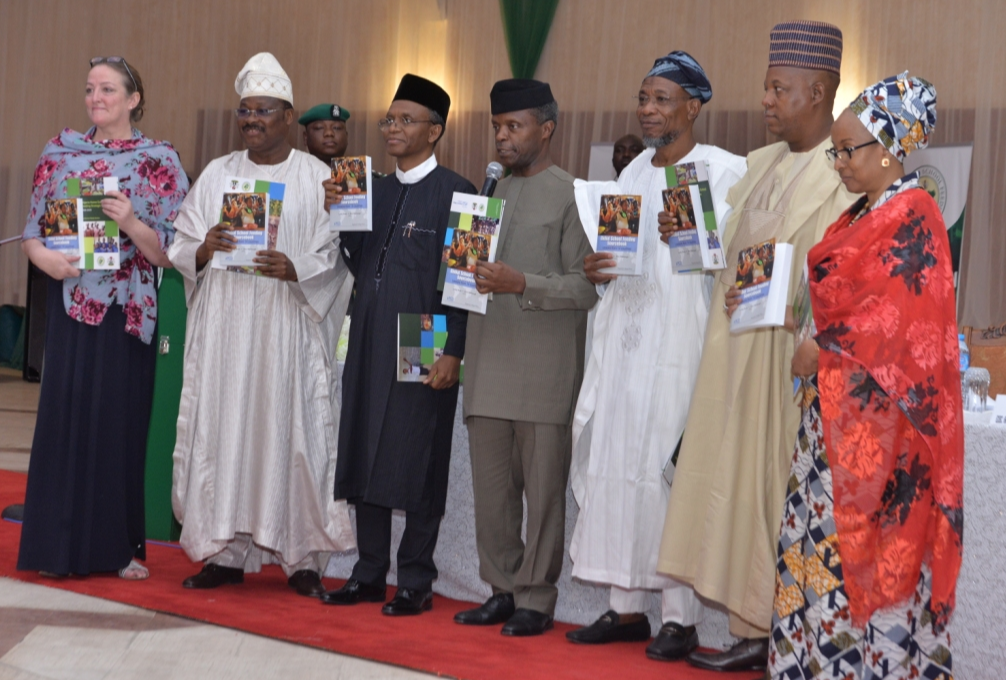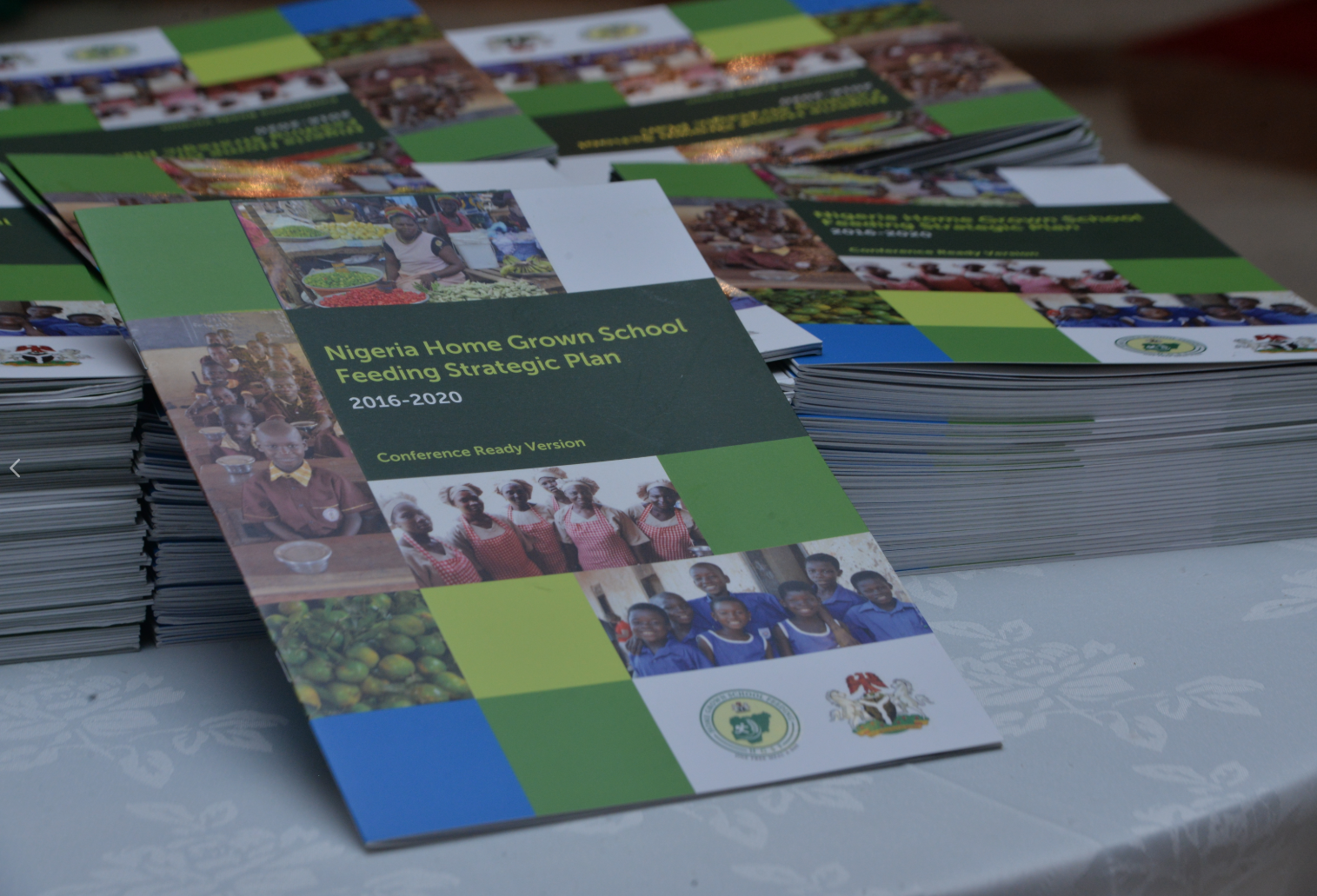Launch Of The National Home Grown School Feeding Programme Strategic Plan
ADDRESS BY THE VICE PRESIDENT, FEDERAL REPUBLIC OF NIGERIA, PROFESSOR YEMI OSINBAJO, SAN, GCON, AT THE LAUNCH OF THE NATIONAL HGSF STRATEGIC PLAN, THE ‘GLOBAL SCHOOL FEEDING SOURCEBOOK AND THE INAUGURATION OF THE NATIONAL COORDINATING TEAM – THEME: “STIMULATING SOCIO- ECONOMIC GROWTH THROUGH THE NATIONAL HOME GROWN SCHOOL FEEDING PROGRAM”, ON THURSDAY, 9TH OF JUNE 2016
Protocols
Good Morning,
We are gathered here today seeking solutions to some of the most intricate problems that face children in Nigeria today.
At once, we want to solve the problem of malnutrition and low enrollment in schools. These twin issues affect an estimated twenty million or more children in Nigeria. Such a stark statistic creates an uneasiness for anyone concerned with public education issues.
We cannot, however, let the situation rob us of the proper response required which is to take resolute action. This event therefore is an attempt to overcome the burden that such stark figures create.
The Strategy we are here to launch is indeed a well thought out and articulated plan of action on this issue. It will ensure that government at federal, state and local levels work together in a highly coordinated fashion that turns these ideas into a reality and bringing real change to the lives of twenty million children and creating the multiplier effect on the local economies in communities where these schools are located by boosting agriculture, entrepreneurship and employment.
This programme like the other social investment schemes already articulated by the President as recently in his May 29 national broadcast is unprecedented in the history of our nation in scale and impact, and therefore deserved an unalloyed determination for careful implementation. This might mean a little more time to guarantee effective delivery, but without a doubt we are convinced and certain that our promises to the Nigerian people would become a reality very soon.
The Home Grown School Feeding Programme has four main benefits: it will improve school enrolment and completion and curb the current dropout rates from primary school estimated at 30% and thereby also reduce child labour.
It will improve child nutrition and health. As a result of poverty, many children have poor nutrition and worrying health status, which affects learning outcomes. The programme aims to address this.
It will also increase local agricultural production. This will not only increase production, but provides a structural demand for agricultural produce and thus creates local economies that have a ready-made market for their produce and guaranteed profit.
Finally, it will create jobs which will help lift families below the poverty line over that line and into a brighter future.
We will work hard to ensure that all these benefits are not just a good pitch but become real and bringing desirable change in the lives of our people and in the midst of our communities.
However, the strategic plan will only work when we imbibe a new level of cooperation between the federal, state and local levels of governments. It is said that all politics is local. So too development! We therefore recognize the fact that these plans must have specific interpretations in the specific communities. It is called “Home Grown School Feeding” for a reason. It must be owned by the people for whom it has been designed
On its part, the Federal Government has taken responsibility for the provision of the funding and also secured sound technical support. Yet the Federal Government is just one partner in a value-chain of governance, if you will, that will also include development partners, financial institutions, educational institutions and civil society groups. It is the tying of these efforts into a cohesive whole that today’s workshop aims to achieve.
We are here to see the parts fit together into one whole effort that will solve these issues and continue to solve them long after none of us are involved in the process. We want to build symbiotic institutions that truly affect lives not to merely create bureaucracies.
I have noted earlier that the scale of social investments in citizens by this government is ambitious. It is also very real. Our resolve is sure and our aim is true. We will make progress, even as the programme begins with eighteen states in the first phase, and so we can work out the bugs and get it right. Let this be a common commitment of all interested and concerned parties in the process of implementation that begins today.
The Home Grown Feeding Programme is no longer on paper. Its scale will create the laudable impact desired – a more abundant life for our primary school pupils as they learn, and the attendant salutary effects on the local economies and the people.
I am therefore delighted to launch the National Strategy for the Home Grown School Feeding Programme, inaugurate the National Coordinating Team, and also present The Global School Feeding Sourcebook.
Thank you.



